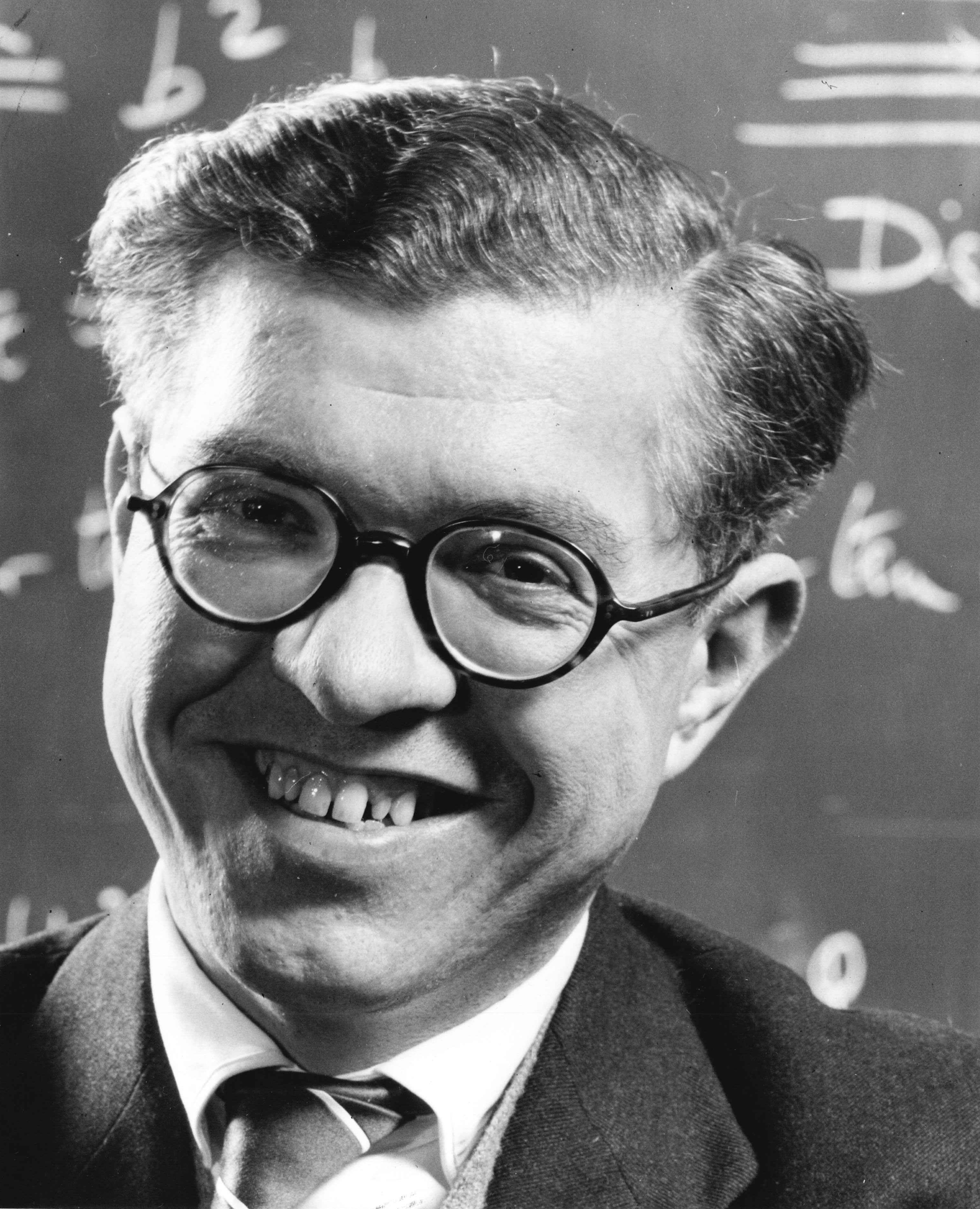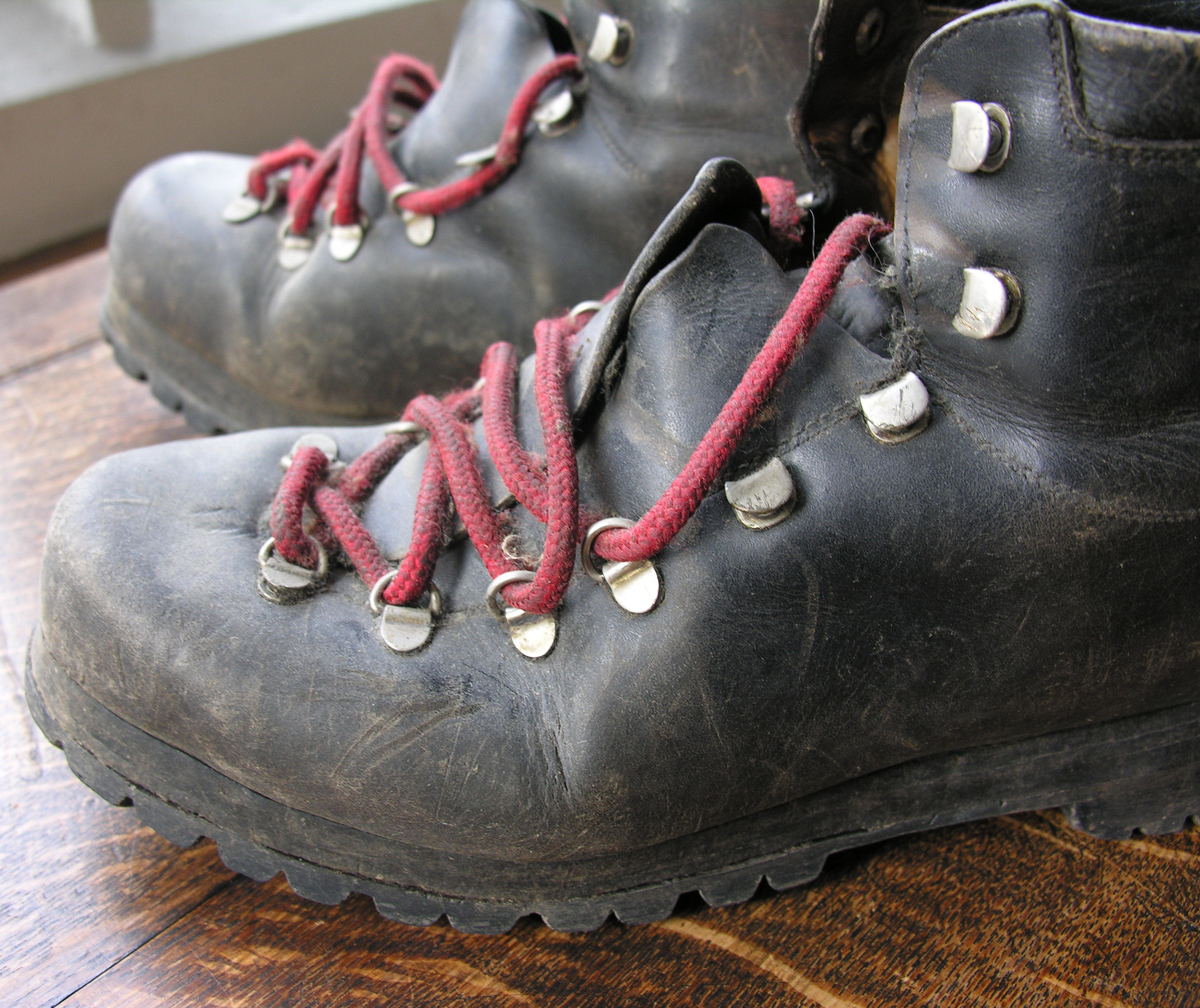The Fred Hoyle Collection at St John’s College Library
What do a pair of walking boots, five boxes of photographs, two ice axes, some dental X-rays, a telescope, ten large film reels and an unpublished opera have in common? They’re all part of the Fred Hoyle Collection of personal ‘papers’ held at St John’s College Library.
Sir Fred Hoyle (1915-2001) was an astronomer and astrophysicist, a science-fiction author, a mountain climber, a populariser of science, and a famous radio personality. He is famous as the man who in 1949 coined the phrase ‘big bang’ to describe the cosmological theory that had hitherto been known as the ‘hypothesis of the primeval atom’. Hoyle himself didn’t actually support the big bang theory, and in a scientific career spanning seven decades he researched and wrote prolifically on a range of subjects — including stellar evolution, the origin of the chemical elements, the age and structure of the universe, the nature of gravity and of time, nuclear energy, evolution, and the origins of life–and was no stranger to controversy in the scientific and popular press.

Fred Hoyle in the 1950s. For permission to reproduce, please contact Kathryn McKee km10007@cam.ac.uk
Hoyle came up to the University of Cambridge as an undergraduate at Emmanuel College in 1933, became a Fellow of St John’s College in 1939, and was the University’s Plumian Professor of Astronomy and Experimental Philosophy from 1958 to 1972. In 1972 he resigned from the University and moved away from Cambridge to live in a remote corner of the Lake District, and later in Bournemouth, with his wife, Barbara.
After Hoyle’s death, his family donated his personal papers, books, photographs and some artefacts to St John’s College Library. This generous donation arrived in ten large filing cabinets, later re-housed in 150 archival boxes, and is the largest collection of papers held by the Library. The collection spans Hoyle’s lifetime and beyond, from family photographs taken in the late 1800s to biographical research notes donated by Hoyle’s biographer Simon Mitton. As well as some of the more unusual artefacts mentioned above, it includes drafts of most of Hoyle’s articles and books, correspondence with many of the leading scientists, politicians and personalities of his day, and the minutiae of everyday family life.
It’s almost impossible to summarise the contents of the collection either systematically or comprehensively. Hoyle was a man of many interests; he would move from topic to topic as inspiration struck and left behind him a trail of draft articles, talks, lectures and mathematical jottings, all written on endless Heffers writing pads, the tops of pages often numbered but the pads rarely dated.
The collection contains a wide variety of correspondence. Hundreds of letters from members of the public were retained by his family. Many of these were written in support of Hoyle’s ‘steady state’ theory, a now scientifically unfavoured alternative to the big bang theory, others in response to Hoyle’s radio and television appearances, and a small but significant number voicing the authors’ own scientific, religious and philosophical theories. In his early career and during World War II he worked closely with Cambridge physicist Ray Lyttleton, and roughly seventy of Lyttleton’s letters, written in pencil and seldom dated, survive from this time. Towards the end of his life Hoyle was collaborating with Geoffrey Burbidge in California and Jayant Narlikar in India, with whom he communicated primarily via fax. Revised drafts of their articles and book zipped around the world several times and many copies remain in the collection.

Fred Hoyle’s walking boots, donated to St John’s College in 2002.
Ten boxes in the collection hold the drafts of thirty-or-so unpublished detective stories set in the fictional St Stephen’s College, Cambridge, written during the 1990s. Several others contain science fiction novels and plays—Hoyle collaborated for a time with another famous Yorkshire man, J.B. Priestley, on a play called The astronauts that was never completed—mostly in Hoyle’s recognisable (and thankfully legible) handwriting, and sometimes in the hand of his son, Geoffrey (with whom he co-authored several books) or his wife Barbara. Eighteen of Hoyle’s science fiction novels were published, beginning with The black cloud in 1957 (republished by Penguin in 2010) and ending with Comet Halley in 1986. The manuscripts of many, though not all, of these survive; some were the victims of Hoyle’s frequent travel between Cambridge and the California Institute of Technology. All of Hoyle’s published works are, however, represented in his own library of books, also held by St John’s College, which include author copies in myriad languages as well as some copies (in English) annotated by Hoyle in preparation for later editions.
And what of the exceptional items listed at the start? Hoyle was a keen mountain climber and hill walker; the walking boots and ice axes were donated in acknowledgement of that, along with several annotated Ordnance Survey maps, a and Hoyle’s bright orange walking rucksack complete with compass in the top pocket. The dental X-rays show Barbara Hoyle’s wisdom teeth in the 1940s: the dentist decided that they didn’t need any work for the time being. The film reels show family recordings of Hoyle at Stonehenge, considering its possible astronomical uses. The comic opera in three acts, The Alchemy of Love or the Daemon Servant’s Retribution, with libretto by Hoyle and music by American composer Leo Smit was never performed in full. Another collaboration between Hoyle and Smit, Copernicus: Narrative and Credo, a ‘secular cantata’ about the life and work of the sixteenth-century Polish astronomer was premiered in 1973 and is available today both as a musical score and a CD recording.
From March 2008 to March 2011, the Hoyle Collection has been catalogued, and opened up to new audiences, as part of the Hoyle Project, funded by the Heritage Lottery Fund, St John’s College, and the Friends of the Center for the History of Physics, American Institute of Physics. A full catalogue of the papers is available upon request to the Library, and a summary list is available online. More information about Hoyle including an online exhibition of the Collection is available on the Hoyle Project webpages.
The Hoyle Collection is only one of several significant collections of personal papers in St John’s College Library. Full details of the Library’s holdings of papers, manuscripts and rare books are available on the Library’s website.
Katie Birkwood (St John’s)